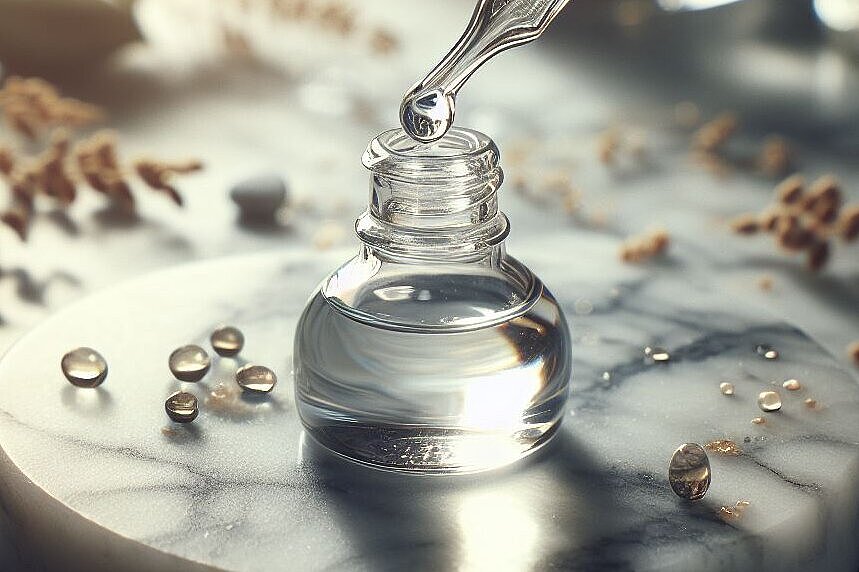Hydroquinone

What is hydroquinone?
Hydroquinone is an organic compound mainly known for its skin lightening properties. In human dermatology, hydroquinone is used to treat pigmentation disorders such as age spots, freckles and melasma. It works by reducing the production of melanin, the pigment that gives skin, hair and eyes their color. However, its use is not limited to humans; hydroquinone is also used in the animal world, particularly in dogs, albeit with mixed results and opinions.
Potential benefits of hydroquinone in dog care
Improvement in appearance
In dogs, hydroquinone could theoretically help treat hyperpigmentation or dark spots on the skin caused by various factors such as age, injury or sun exposure. A more even coat can increase the dog's well-being and the owner's satisfaction.
Treatment of skin diseases
In some cases, hydroquinone could be helpful in treating specific skin conditions associated with excessive pigmentation. It could be part of a treatment plan, but only under strict veterinary supervision.
Possible disadvantages and risks
The use of hydroquinone in dogs is not without controversy, and there are legitimate concerns about its safety.
Toxicity
Hydroquinone can be toxic in dogs, especially when used in high doses or over a long period of time. Symptoms of poisoning can include nausea, vomiting, diarrhea, and in severe cases even skin irritation or chemical burns.
Allergic reactions
As with many other chemical substances, there is a risk of allergic reactions when using hydroquinone. These can range from mild skin irritation to severe allergic reactions that require immediate medical attention.
Long-term effects
The long-term effects of hydroquinone on the skin of dogs are largely unknown. In humans, long-term use of hydroquinone has been associated with an increased risk of skin cancer and other health problems. Similar risks could theoretically exist in dogs.
Precautions and recommendations
Given the potential risks, hydroquinone should be used with extreme caution in dogs and only under the direct supervision of a qualified veterinarian. It is important to explore alternative treatments that are safer and specifically designed for use in dogs.
While hydroquinone may offer certain benefits in dog care, the potential risks and disadvantages clearly outweigh them. Your dog's health and well-being should always come first. Before deciding to use hydroquinone or similar substances, you should carefully consider the risks and seek professional advice. Responsible care is based on safe and proven practices that ensure the best for your four-legged friend.
If you notice any signs of hypersensitivity or poisoning in your dog, you should see your vet immediately. We are not a substitute for a vet, but we try to be as accurate as possible. Every dog reacts differently and we recommend you get a second opinion or consult your vet if in doubt.
Stay healthy and take good care of your four-legged friend!😊
Similar to Hydroquinone
Kojic acid is an organic compound that was first isolated by Japanese scientists in 1907 from various types of molds, particularly Aspergillus oryzae (known as koji, which is also used in the...
Arbutin, also known as hydroquinone-β-D-glucopyranoside, is a glycoside that occurs naturally in many plants, including bearberry, cranberry, pear and wheat. It is often used in the cosmetics...
Azelaic acid is a naturally occurring dicarboxylic acid extracted from various cereals such as wheat, rye and barley. In dermatological practice, it is often used to treat acne, rosacea and...
Ferulic acid is an organic compound that belongs to the group of hydroxycinnamic acids and is found in the cell walls of plants. It is known for its strong antioxidant properties and is found in a...



